News
The Fourth Sunday of Easter ‒ Jesus, the Good Shepherd
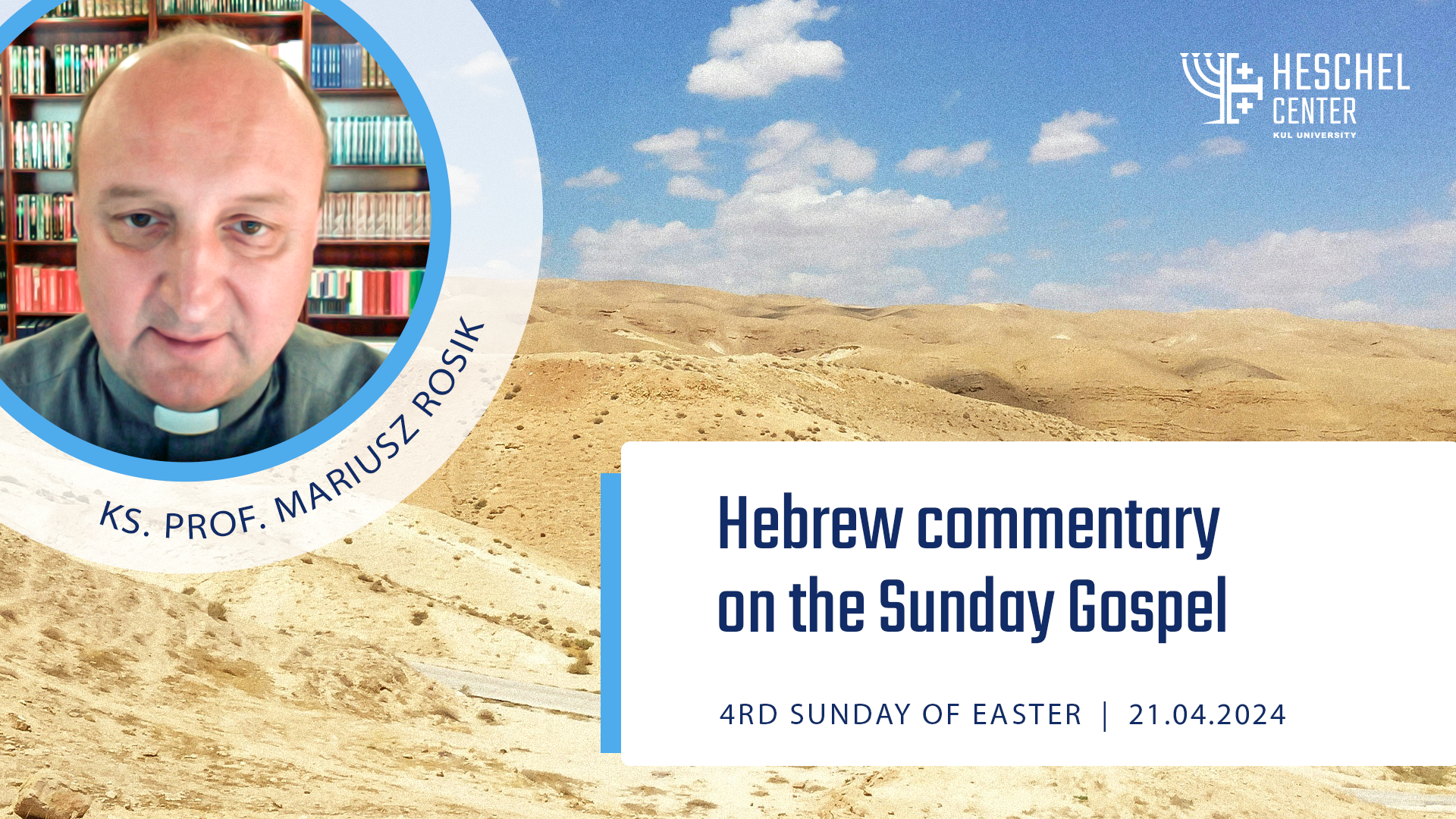
Bedouins are nomadic Arab tribes still living in ancient Palestine's desert and mountainous areas. They are mainly engaged in sheep herding. Surprisingly, even a group of dozens of Bedouins can speak only a language they understand and cherish customs peculiar to them. Living far away from cities and larger settlements, they sit around a campfire in front of their tents to talk for a long time, sing, and keep a night watch on their flocks. Sometimes, this proves necessary, as there are cases of sheep being stolen or attacked by wolves. From time to time, the Israeli press reports on mutual theft of flocks among various Bedouin tribes or attacks by wild animals. More than one shepherd lost his life in defense of his flock.
Third Sunday of Easter

My initial plan for our commentary was to talk about how one of the two disciples on the road to Emmaus in Luke 24, both historically and grammatically, may have been a woman. But the first reading, Acts 3.13-15, 17-19, demands commentary. If left without commentary, the reading threatens to introduce or reinforce the antisemitism that has infected, and continues to infect, Christian preaching.
Resurrection Sunday
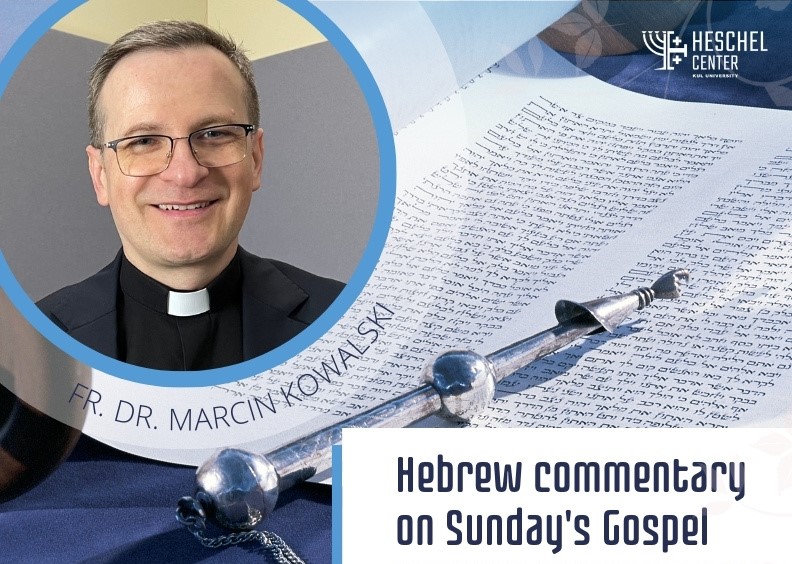 Resurrection Sunday
Resurrection Sunday
Run to the tomb
The Gospel of John we read on the Resurrection Sunday tells of a special run to the tomb. It is started by Mary Magdalene, who sets out as the first one, at dawn. Darkness, which still reigns, symbolizes the disbelief and despair, in which the disciples are plunged after Jesus’ death. Mary is guided in her journey by her heart, a loving and longing heart that does not stop looking for the Lord. Reaching the site, Mary sees the stone removed from the tomb and understands nothing of the scene (John 20:1). So she turns back and comes to Simon Peter and the disciple whom Jesus loved, John. Approaching them, Mary confesses: “They have taken the Lord out of the tomb, and we do not know where they have laid him” (Jn 20:2). This dramatic confession underscores the complete confusion of Jesus’ disciples in the face of the mystery of his resurrection.
Prof. Abraham Skórka`s thoughts on Catholic Easter and Jewish Passover
 Prof. Abraham Skórka, Honorary Doctor of the John Paul Catholic University of Lublin and member of the Council of the Abraham Joshua Heschel Center for Catholic-Jewish Relations at the KUL, on the Celebration of Freedom, Redemption, and Divine Mercy that bridge the Christian celebration of Easter and the Jewish celebration of Passover.
Prof. Abraham Skórka, Honorary Doctor of the John Paul Catholic University of Lublin and member of the Council of the Abraham Joshua Heschel Center for Catholic-Jewish Relations at the KUL, on the Celebration of Freedom, Redemption, and Divine Mercy that bridge the Christian celebration of Easter and the Jewish celebration of Passover.
Palm Sunday: Jesus’ Entry into Jerusalem

Palm Sunday: Jesus’ Entry into Jerusalem
Palm Sunday is a prelude to the Holy Week of the Passion, Death and Resurrection of Christ. For Christians, it is the most important time of the liturgical year. This year we read the Gospel of Mark which narrates Jesus' entry into Jerusalem.
According to scholars, this is the first and the oldest of the Gospels. Jerome argues that Mark wrote it at the request of brothers in Rome. The focal point of the Gospel is Peter's confession at Caesarea Philippi (8:27-30). After this confession, Jesus is heading to Jerusalem, where the prophets' predictions about him are to be fulfilled.
Entering Jerusalem, the Master makes sure that the disciples understand in his life the fulfillment of the prophecies about the humble King - the Messiah.
The customs and the hidden meaning of the feast of Purim
 Purim is the day where we celebrate being saved from extermination at the hands of the advisor to the Persian king as is told in the Book of Esther. I’m sure you’re all familiar with the story, but...
Purim is the day where we celebrate being saved from extermination at the hands of the advisor to the Persian king as is told in the Book of Esther. I’m sure you’re all familiar with the story, but...
“Bat Kol” – “Divine voice” in the Biblical and Rabbinical Tradition
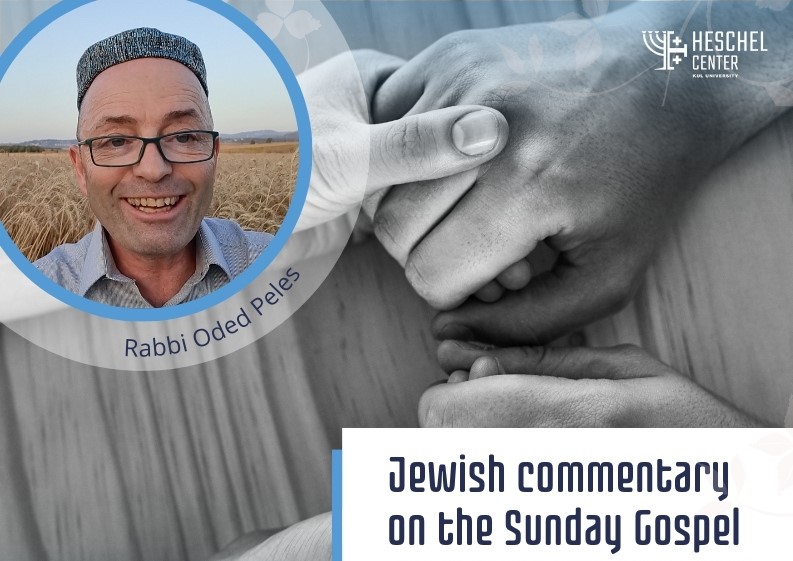
“Bat Kol” – “Divine voice” in the Biblical and Rabbinical Tradition
In the Gospel according to John (12, 28-30), we read: "Then a voice came from heaven, “I have glorified it and will glorify it again…Jesus answered and said: “This voice did not come for my sake but for yours". A heavenly or prophetic voice is a well-known phenomenon which appears frequently in Jewish Rabbinic literature and tradition. It is a message from God to human beings through sound. It's often called in Hebrew: Bat Kol (daughter of voice).
Jesus and Jewish scholars on attitudes toward Temple commerce
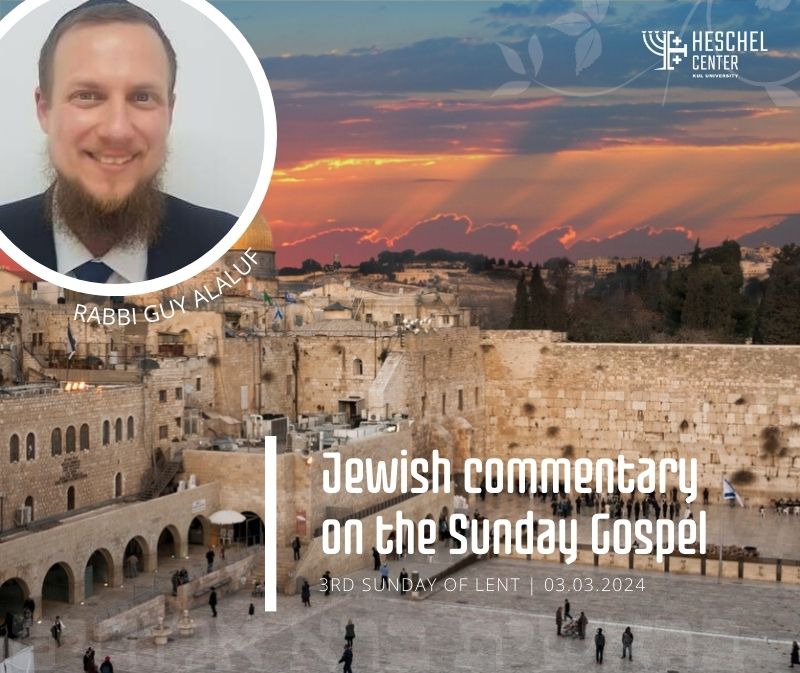 Jesus expels merchants and money changers from the Temple. However, a crucial question arises: is this criticism a general indictment of all Jews in the time of Jesus, or is it specifically targeted at the temple's priests? - Orthodox Rabbi Guy Alaluf answers this question in a commentary for the Heschel Center, referring to the words of the Gospel of the Third Sunday of Lent and the teachings of Jewish thinkers of the Second Temple era.
Jesus expels merchants and money changers from the Temple. However, a crucial question arises: is this criticism a general indictment of all Jews in the time of Jesus, or is it specifically targeted at the temple's priests? - Orthodox Rabbi Guy Alaluf answers this question in a commentary for the Heschel Center, referring to the words of the Gospel of the Third Sunday of Lent and the teachings of Jewish thinkers of the Second Temple era.
We publish the entire commentary on the Gospel reading on March 3, 2024.
How Jesus understood fasting - the Jewish concept of fasting today and in the past
 In Judaism, fasting is a desire to purify and get closer to God. Its purpose is conversion. Fasting itself is useless if it does not lead to abandoning one's evil deeds," stressed Shlomo Libertovski in a commentary for the Heschel Center KUL on the Gospel of the First Sunday of Lent, explaining how fasting was and is viewed in Judaism today.
In Judaism, fasting is a desire to purify and get closer to God. Its purpose is conversion. Fasting itself is useless if it does not lead to abandoning one's evil deeds," stressed Shlomo Libertovski in a commentary for the Heschel Center KUL on the Gospel of the First Sunday of Lent, explaining how fasting was and is viewed in Judaism today.
Commentary on the Sunday Gospel - Jesus about women leaders in the Church
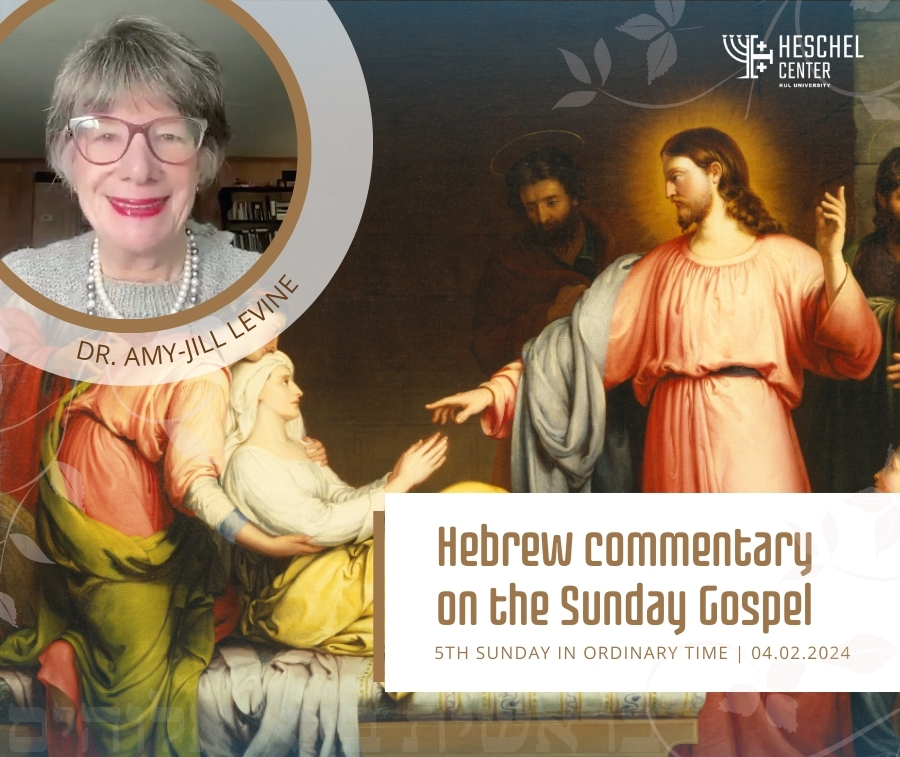 Listening to the story of the healing of Simon Peter's mother-in-law, who rose from her her bed and “waited on” Jesus and his disciples, we can perceive it as a message to women to serve men always and everywhere, regardless of circumstances - about why this impression is misleading and what the story can be a call to, explains Dr. Amy-Jill Levine, professor of New Testament and Jewish Studies and the first Jewish woman to teach New Testament at the Pontifical Biblical Institute in Rome, in a commentary for the Catholic University's Heschel Center for Sunday, February 4.
Listening to the story of the healing of Simon Peter's mother-in-law, who rose from her her bed and “waited on” Jesus and his disciples, we can perceive it as a message to women to serve men always and everywhere, regardless of circumstances - about why this impression is misleading and what the story can be a call to, explains Dr. Amy-Jill Levine, professor of New Testament and Jewish Studies and the first Jewish woman to teach New Testament at the Pontifical Biblical Institute in Rome, in a commentary for the Catholic University's Heschel Center for Sunday, February 4.











